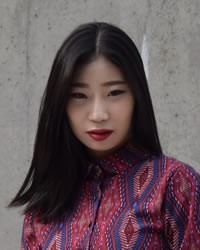Koreans are believed to have ancestral links to the ancient Mongolians and Turks. They likely migrated to the Korean peninsula from as far away as the Siberian region. Distinct regional differences in culture and politics exist among South Koreans. The most important regional difference is between the Gyeongsang region in the southeast and the Jeolla region in the southwest. The two regions maintain a rivalry that reaches back to the fourth century AD. The rivalry originated from a struggle for control of the peninsula. Korean regional differences melt away among those who migrate to other countries like the United States. They learn to get along and cooperate, since they are all minorities in a culturally different land.
Though there were some Koreans who came to the U.S. in earlier days, a small number arrived in the first half of the 1900s. There were Korean War refugees that came from 1950-64. After the 1965 Immigration Act, they became the second fastest growing Asian group to move to the United States. America became home to the largest Korean diaspora.
In the early 1980s, Koreans opened dry cleaners and other small businesses in decaying cities. Others were church planters. Their children were prominent in getting into prestigious universities. Some Koreans have become elected officials in the United States.
Korea has a strong economy with all the modern conveniences. Those who move abroad are usually trying to get an education or find new business or job opportunities. Though some Koreans in the U.S. live below the poverty line, they are mostly known for holding high-paying white collar jobs.
Koreans are Christians or Buddhist, though many are secular. Many Koreans see religion as an inherited trait as much or more so than a faith. Also, many South Koreans practice elements of several belief systems including new religions and New Age spiritualities. Many modern, relativistic approaches to faith and hybrid religious belief systems exist. Christianity is the only faith that maintains distinct lines between those who belong to the belief system and those who do not.
Koreans needs continued clear and consistent representation of biblical Christianity. Koreans in the U.S. need to see Christians living out Christ's teachings about love, service, and faith.
Pray that God will ignite passion for him and his word in among Koreans in the United States.
Pray that Koreans will evangelize the lost in the United States for the glory of God.
Praise God for the amazing missionary vision of the Korean Church!
Pray that Koreans in the U.S. will draw the local people to join them as a vibrant mission force.
Scripture Prayers for the Korean in United States.
Wallace Revels
https://en.wikipedia.org/wiki/Korean_Americans
https://www.migrationpolicy.org/article/korean-immigrants-united-states
| Profile Source: Joshua Project |












